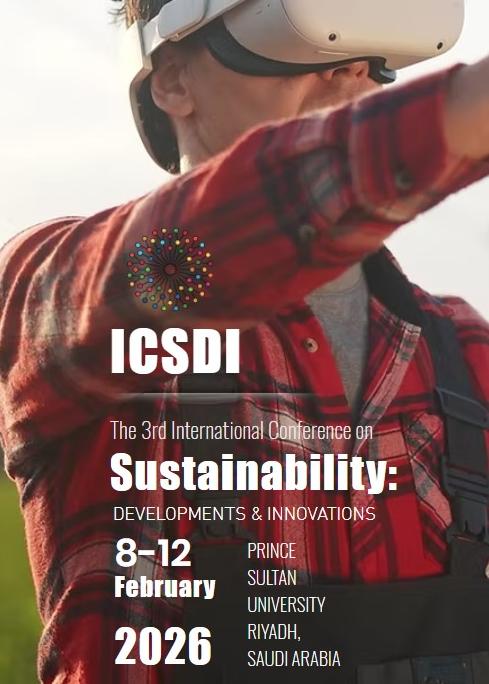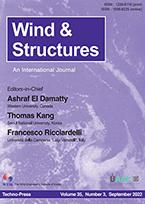46th PARIS International Conference on “Latest Trends in Science, Engineering & Technology” (LLTST-25) Dec. 3-5, 2025 Paris (France)
LLTST-25
- URL: https://fenp.org/conference/328
- Event Date: 2025-12-03 ~ 2025-12-05
- Submission Date: 2025-11-20
- Organizer: FENP
- Location: Paris, France
Materials Engineering Chemical & Material Sciences (General) Engineering & Computer Science (General) Materials Engineering Aviation & Aerospace Engineering Structural Engineering Theoretical Computer Science Food Science & Technology Wood Science & Technology Science & Engineering Education
Call for papers/Topics
Topics of interest for submission include any topics on "Science, Engineering & Technology":
I. Fundamental Sciences and Emerging Technologies:
- Advanced Materials Science:
- Nanomaterials and Nanotechnology.
- Smart Materials and Composites.
- Biomaterials and Tissue Engineering.
- Sustainable Materials and Recycling.
- Artificial Intelligence (AI) and Machine Learning (ML):
- Deep Learning and Neural Networks.
- AI for Robotics and Automation.
- Natural Language Processing (NLP).
- AI Ethics and Responsible AI.
- AI in healthcare.
- Quantum Technologies:
- Quantum Computing and Information.
- Quantum Sensing and Metrology.
- Quantum Communication and Cryptography.
- Biotechnology and Bioengineering:
- Genomics and Proteomics.
- Synthetic Biology.
- Biomedical Engineering and Medical Devices.
- Pharmaceutical Engineering.
- Space Science and Technology:
- Astrophysics and Cosmology.
- Space Exploration and Planetary Science.
- Satellite Technology and Remote Sensing.
- Aerospace Engineering.
II. Engineering Disciplines and Applications:
- Computer Science and Engineering:
- Cybersecurity and Network Security.
- Cloud Computing and Big Data Analytics.
- Internet of Things (IoT) and Embedded Systems.
- Software Engineering and Development.
- Human-Computer Interaction (HCI).
- Electrical and Electronics Engineering:
- Renewable Energy Systems and Smart Grids.
- Power Electronics and Control.
- Microelectronics and VLSI Design.
- Communication Systems and Networks (5G/6G).
- Signal and image processing.
- Mechanical Engineering:
- Advanced Manufacturing and Robotics.
- Fluid Mechanics and Thermodynamics.
- Aerospace and Automotive Engineering.
- Sustainable Energy Technologies.
- Civil and Environmental Engineering:
- Sustainable Infrastructure and Construction.
- Water Resources Management.
- Water Treatment
- Geotechnical Engineering and Disaster Management.
- Environmental Remediation and Pollution Control.
- Waste Management
- Chemical Engineering:
- Sustainable Chemical Processes.
- Materials Synthesis and Processing.
- Bioprocessing and Biochemical Engineering.
- Catalysis.
III. Cross-Disciplinary and Societal Impact:
- Energy and Sustainability:
- Renewable Energy Sources and Storage.
- Carbon Capture and Sequestration.
- Sustainable Development and Environmental Technologies.
- Information and Communication Technologies (ICT):
- Digital Transformation and Industry 4.0.
- Data Science and Analytics.
- Cyber-Physical Systems.
- Healthcare Technologies:
- Medical Imaging and Diagnostics.
- Telemedicine and Digital Health.
- Assistive Technologies.
- Ethical and Societal Implications:
- Ethics in AI and Robotics.
- Technology and Social Impact.
- The Future of Work and Automation.
- Responsible innovation.
- Education and Technology:
- The use of new technologies in education.
- Development of online learning systems.














